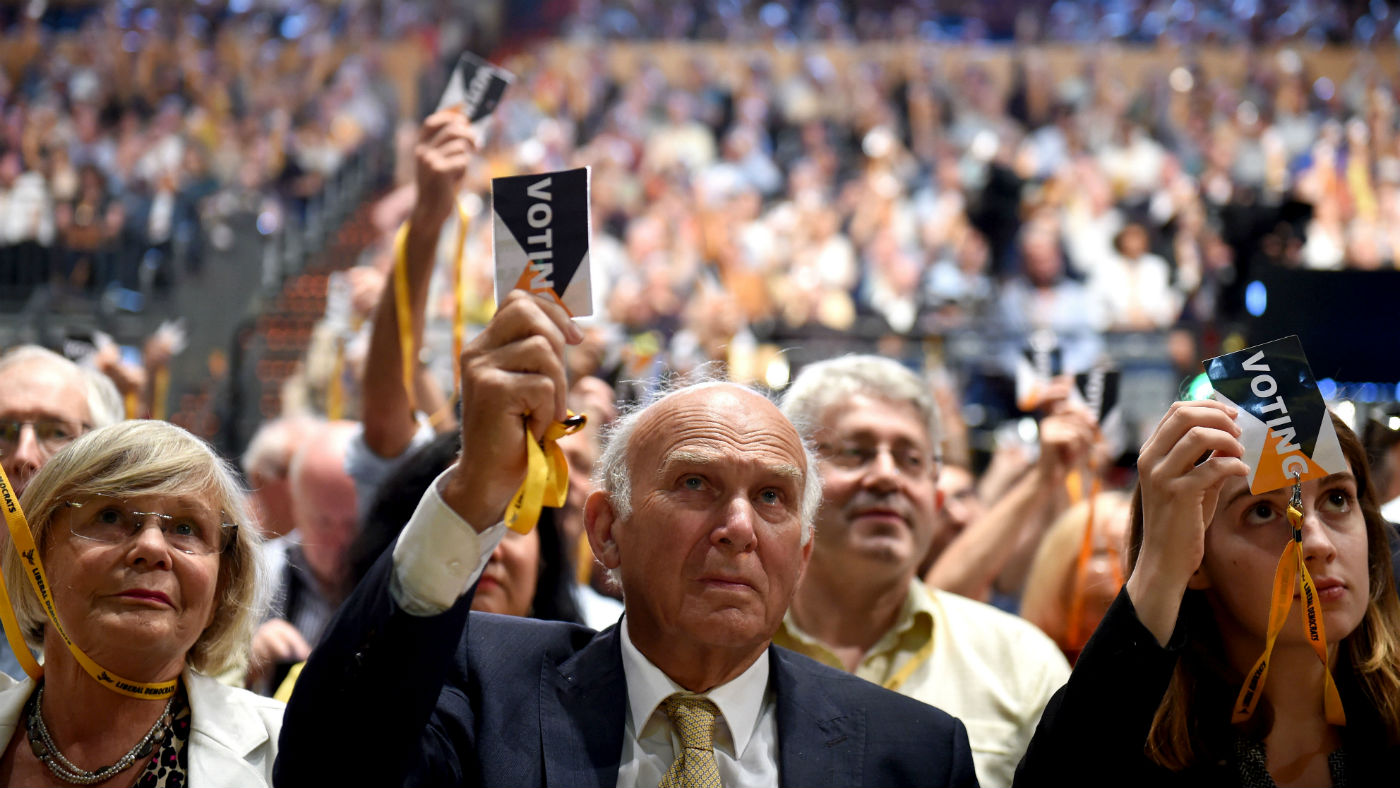Are the Lib Dems becoming more illiberal?
Jo Swinson defends decision to admit another Tory defector, as members vote to revoke Article 50

A free daily email with the biggest news stories of the day – and the best features from TheWeek.com
You are now subscribed
Your newsletter sign-up was successful
The Lib Dem leader, Jo Swinson, has defended her decision to admit a slew of Tory defectors into the party, despite their illiberal voting records.
Speaking as activists gathered for their annual conference in Bournemouth, Swinson said the defection of MPs like Sam Gyimah and Phillip Lee was a sign that Lib Dems had become “the rallying point for liberal values in this country” at a time when the major parties were lurching to the extreme under leaders who were “not fit to be prime minister”.
But according to The Independent, Gyimah’s dramatic unveiling on Saturday as the latest in a string of MPs defecting to the Lib Dems “was greeted with dismay by some activists, because of his low-tax convictions and previous endorsement of austerity policies”.
The Week
Escape your echo chamber. Get the facts behind the news, plus analysis from multiple perspectives.

Sign up for The Week's Free Newsletters
From our morning news briefing to a weekly Good News Newsletter, get the best of The Week delivered directly to your inbox.
From our morning news briefing to a weekly Good News Newsletter, get the best of The Week delivered directly to your inbox.
It follows the earlier defection of Phillip Lee - which deprived Boris Johnson of his working majority in the House of Commons – which was condemned by some Lib Dems because of his record of voting against same-sex marriage and campaigning to bar people with HIV from entering the country.
His defection prompted the former chair of the Lib Dem LGBT caucus, Jennie Rigg, to quit the party, describing Dr Lee as “a homophobe, a xenophobe”.
The party has seen its number of MPs surge over the past six months, with former Labour and Tory defectors joining its ranks, yet apart from their opposition to Brexit little seems to unite them.
This concern was highlighted by Rigg in her resignation letters in which she said: “I thought the Lib Dems were not a single issue party. I thought we had a soul and principles.”
A free daily email with the biggest news stories of the day – and the best features from TheWeek.com
The eagerness to accept disaffected MPs of all stripes regardless of their past position on social issues especially has opened the leadership up to claims it is becoming a “soft Tory party”.
Addressing the conference, chief whip Alistair Carmichael admitted the party could have handled Lee’s defection from the Tories better, adding “We have not been deaf to the concerns of LGBT+.”
The party’s hardline opposition to Brexit was formally recognised at conference, after members officially endorsed revoking Article 50 without a referendum if leader Swinson wins power at the next general election, in what The Independent calls “a major shift for the unashamedly pro-EU party”,
With a general election expected before the end of the year, the new policy “hardens the Lib Dems’ position as the most strongly opposed to Brexit among UK mainstream parties” says Politico, a stance “that may help attract voters who opted to remain in the EU in the 2016 referendum”.
The landslide vote is “a sign of just how profoundly the dynamics of the party’s internal debate on Europe has changed since the EU referendum” says the New Statesman. When former leader Tim Farron first proposed the party advocate for a second referendum in 2016, he was met by considerable internal resistance - not least by Vince Cable, who went as far as to criticise him public. Now no more than one in 20 members oppose revoking Article 50.
“In Brexit terms, revoking Article 50 could be considered the nuclear option” says BBC political correspondent Jonathan Blake.
Yet with little to no chance of the Lib Dems forming the next government it’s a nuclear option with little foreseeable downside.
“If they don't find themselves in government they will, we can assume, revert to campaigning for a further referendum as the best way to reverse the result of the last one. So, this policy allows the party to send a message to voters that they are as opposed to Brexit as it's possible to be,” says Blake.
“But it's not without risk for a party with the word ‘democrat’ in its name to promise to overturn the result of a referendum without putting that question to the electorate again,” he adds.